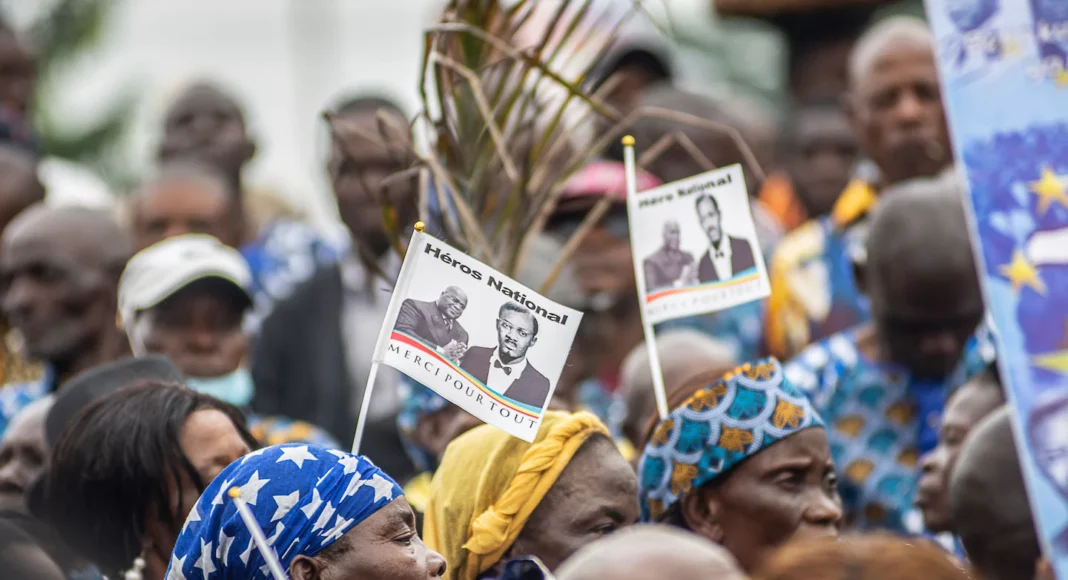Ειδήσεις Ελλάδα

Placeholder while article actions load
Independence leader Patrice Lumumba, who served as the Democratic Republic of Congo’s first prime minister before his 1961 assassination, was interred on Thursday in a mausoleum in the heart of Kinshasa, the capital of the country he helped create.
Thousands gathered along the streets to pay respects on what was also the 62nd anniversary of Congo’s independence from Belgium. Lumumba’s only known remains — a gold-crowned tooth — were carried by a military vehicle to his final resting place. The anti-colonialist’s body had been dissolved and dismembered by Belgian authorities, who feared that a grave would become a pilgrimage site.
The relic was apparently kept by the family of a Belgian police official who took it six decades ago, before it was seized by Belgian authorities in 2016, according to the Associated Press. They returned the tooth to Lumumba’s family at a ceremony in Brussels last month.
Black Lives Matter protesters in Belgium want statues of colonialist King Léopold II to come down
Congolese President Félix Tshisekedi, who attended Thursday’s ceremony, called Lumumba an “inspiring figure on an international scale” and praised the founding father’s campaign against imperialism on the African continent.
Diplomats and other foreign leaders, including President Denis Sassou-Nguesso of the neighboring Republic of Congo, also attended the service at the mausoleum, the AP reported.
Lumumba rose to prominence in 1958, when he became the leader of a major national movement as Congo neared independence from Belgian rule. The feat was notable because it was illegal to form political parties in the colony, said Norman Etherington, a historian of European imperialism at the University of Western Australia.
The slain leader advocated nonalignment at the height of the Cold War, which stoked fear in the West that Congo would come under Soviet influence. Investigations later indicated that Brussels conspired with Lumumba’s political rival to kill him in 1961, Etherington said. A Belgian parliamentary probe in 2002 said the country was “morally responsible” for Lumumba’s death.
“So many young Africans at the time saw him as a martyr to Belgian colonialism, to American imperialism, to the CIA, to international mining interests, everything that they hoped they were getting out of through independence,” he said.
President Dwight D. Eisenhower, who was in office during Lumumba’s premiership, also approved his assassination, though the U.S. plan was never carried out, Etherington said. Eisenhower administration officials have said the president suggested that the Congolese leader be eliminated, according to U.S. government records.
The return of Lumumba’s tooth came amid a push within Belgium to reckon with its brutal colonial past. King Leopold II, whose name and image are omnipresent in Brussels, reigned over the deaths of millions of Congolese people during a rule that was notably cruel even for the time. In the wake of the 2020 police killing of George Floyd, some 10,000 protesters gathered in central Brussels to denounce racism, with many demanding that statues of Leopold be taken down.
On Thursday, a bust of military commander Émile Storms, who helped Belgium seize Congo, was removed from its pedestal in the Brussels area, a move praised by Belgian activists.
Last month, Belgium’s King Philippe offered his “deepest regrets” for the abuses his country committed during the colonization of the Democratic Republic of Congo, but he did not offer a formal apology.
Michael Birnbaum contributed to this report.



